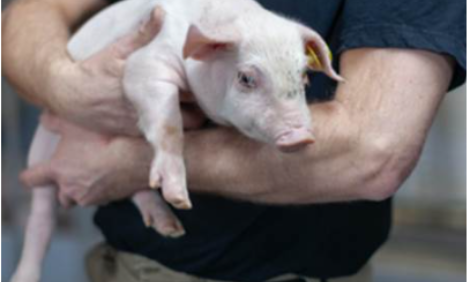



African swine fever vaccine development: field tests underway
Vaccine candidates for African swine fever are being field testedEditor's note: This article is based on an African swine fever webinar presented in January 2023, copyrighted under the terms of an agreement between Informa Markets and the University of Minnesota. The individual speakers are solely responsible for their content and opinions.
Manuel Borca, Veterinary Microbiologist, USDA ARS, said, “what happened with African swine fever is that until 2007 it was restricted to the Republic of Georgia, then it spread to Europe and Asia. At that time, there were a few labs in the world that were working on investigating different aspects of African swine fever, and fewer labs that were involved in the production of vaccines. I think that is the main reason why we are so delayed in the production of the vaccine for African swine fever.”
“After 2007, the amount of laboratories that started working [on an African swine fever vaccine] increased dramatically. And as a result of that, today we probably can say that altogether, maybe 10 or 15 experimental vaccine candidates have been published in scientific journals,” Borca noted. “We can see that there has been a drastic change in the scenario in terms of the expectation to have a vaccine in the near future,” he added.
The African swine fever (ASF) virus, is a big and very complex structure, Borca explained. “We still don't know things that are quite obvious for other systems or other biological models,” he added. The main mechanisms for protection and secondary disease are still unknown. Not knowing which antigens in the virus are involved in the production of protection makes it a big challenge in the development of vaccines, he said.
Promising experimental vaccines
Borca said, “I think the complexity of the virus, the genetic structure, but mainly the lack of research for many years, is why we are still at the state that we are right now with the development of the vaccine for this disease.”
He noted that the most promising experimental vaccines are those based in the production of attenuated adenoviruses.
“Most of the vaccines that have been published are produced by genetic manipulation by eliminating genes in the virus that produce virulence,” he added. “I can use as an example, we [USDA ARS] have developed five different vaccine candidates that have been published, have been patented, have been licensed to different commercial partners that are right now in the process of working on the development of the vaccine at the industrial level.”
Borca explained that the USDA ARS has transferred a vaccine candidate to a commercial partner in Vietnam. That partner company passed all the efficacy and safety requirements established by the Vietnamese government for vaccine approval. The vaccine has been approved for further testing in the field, with several hundred doses authorized to be tested under controlled conditions. This phase of testing is ongoing, he said.
Tens of thousands of doses of that vaccine have been applied without having any important problems, in those cases where the vaccine has been used under controlled conditions, he said.
“I think this means that we are really making advances in the production of live attenuated vaccines that will be used in the relatively near future,” Borca concluded.
Situation in China
Dr. Arkin Wu, Pipestone Nutrition and Riverstone Farms (China), said the Chinese swine industry has been affected by many viruses, but the ASF virus is completely different.
“From my perspective, the biggest difference is, there's really no vaccine or treatment against this virus,” he added.
Interestingly, he noted, “One of the leading veterinarians from China made a comment, and I would totally agree with him, that ASF is the punishment to the Chinese industry for over-relying on vaccines to deal with all the other kinds of disease.” However, an ASF vaccine “can make a huge difference, at least to the Chinese industry”, Wu said.









